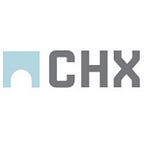Investing in Financial Education through Magnetar Academy
[This post was written by Mark O’Connor, CHX’s Director of Sales]
Financial literacy is an important tool for anyone in today’s world, but personal finance or investing isn’t addressed in high school very often. Perhaps parents or educators think that students will pick up the knowledge by osmosis, or a lightning bolt will hit and the information will magically appear. Most likely, some students will learn harsh lessons about finance first-hand, and it might take them a while to bounce back from those early mistakes.
High school is the best time to start learning about personal finance, investing and the difference between good debt (like a mortgage, for example) and bad debt (such as payday loans). Many teens are exposed to credit cards for the first time in high school, and when you don’t know how to use them properly — and many high schoolers do not — they become bad debt.
Most of us also get our first real job in high school, and we try to learn how to manage that money. But we never learn how to get that money to work for us, or anything related to investing.
The good news is that there are organizations dedicated to changing that. One such organization is Magnetar Academy, which provides financial education curriculum to high schools throughout the Chicago area. They also host a team trading challenge every year, where students get to experience stock trading through a simulated environment.
I first got involved with the Magnetar Academy Team Challenge in March of 2016. Going into the Soldier Field concourse, I wasn’t sure what to expect and thought it could be a “one and done” event for me. The “one and done” thought was quickly kicked out of my head after meeting the students. First, these high school students are considerably smarter about personal finance and investing than I was, even in my early 20s. The opening “financial literacy quiz” at the event demonstrated to me that the students learned some good financial foundation knowledge through their Magnetar Academy curriculum, and the actual stock market challenge showed higher thinking and investing skills than I expected.
Re-upping for the Team Challenge in 2017 was a no-brainer and the high schoolers’ energy and passion was once again palpable at Soldier Field. I was assigned to coach Sullivan High School from Chicago’s Rogers Park neighborhood, and they peppered me with questions from the start.
During the actual contest I had time to speak with their teacher, Ms. Thelma Redmond, and congratulated her on her students’ efforts. We agreed that the Magnetar Academy had pushed her students’ knowledge much farther than either one of us had known in high school. I asked Ms. Redmond if I could come into the classroom and speak with her students after the Team Challenge and she graciously took me up on my offer.
On April 25, I went to the school, not fully knowing what to expect. High school has changed drastically since I graduated in 1980. We had some typewriters in our classrooms; now each desk had a computer workstation. (I also went to an all-boys school, but that’s another topic.)
The aim of my talk was to give an overview of the equity markets, showcase examples of a few public companies like Apple and Starbucks and provide some insight into jobs and the educational requirements needed to get a foot in the door. I spoke about the value of networking, reading, staying curious and developing good writing skills in whatever field the students enter.
The students had some really good questions about investing and even asked about private equity. Going in, I thought that if my words inspired one student and helped them a little, then the day was a great success — it was wonderful to see not just one student, but the full class so interested and engaged.
This type of financial education clearly offers many benefits to students, but it can also be highly beneficial to the capital markets. Like any industry, the success of the markets will be heavily influenced by the number of talented young men and women who decide to make a career in financial services. By educating young people about the types of meaningful and exciting careers available in trading — and then offering them insight and guidance on how to follow those career paths — we can both create new opportunities for deserving kids and help promote a healthier future for our industry.
I’m thankful to Magnetar Academy for getting me involved with financial education in Chicago, and I would encourage anyone — whether in the financial services industry or not — to read more about what they are doing for local students. If you are interested in getting involved yourself, or have any questions about my experience, please let me know. I can’t wait for the 2018 Team Challenge, and I hope to see even more coaches from the industry there as well.
